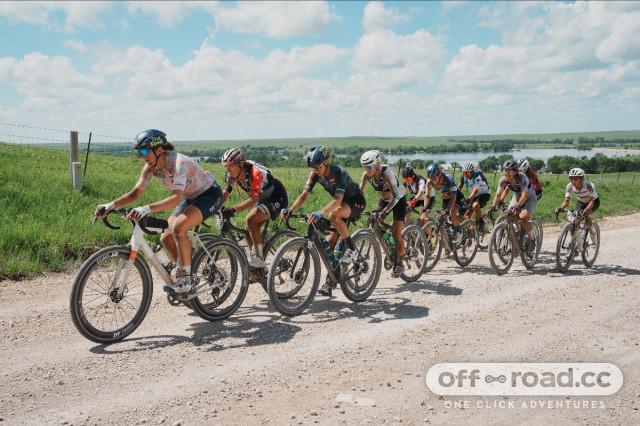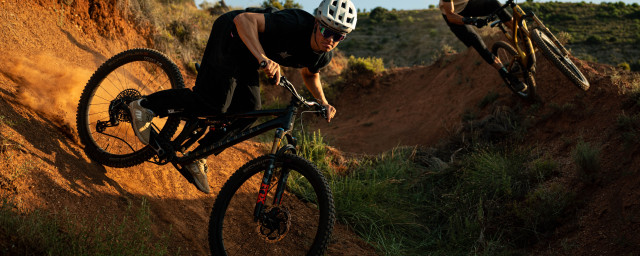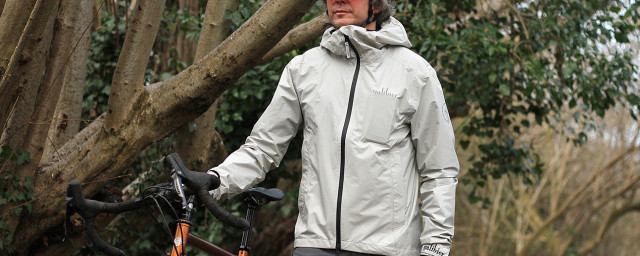Unbound Gravel 2024 - conclusions and takeaways

[Words by Steve Thomas]
Bleary-eyed and caffeine-deprived, I woke from my slumber and immediately grabbed my iPhone. Throughout the evening before I’d eagerly been following the various races at Unbound Gravel in Kansas on the social media channels. Quite what I was expecting to see on the result boards was as blurred as my morning thoughts, and yet as much as I did years ago with races such as Paris-Roubaix, I just wanted to know who had won.
- Are gravel bikes old-school mountain bikes?
- Gravel bike racing – everything you need to know
- What is the spirit of gravel biking?
What had happened on those sticky and hallowed fields of the Kansas Flint Hills? It’s quite amazing really, the fact that after a lifetime involved with this sport, I was giving as much attention to a relatively new unsanctioned gravel race in a remote Mid-West slice of old Americana.
The first Instagram reels I saw were from the backstage of the podium and among the staggered and gritty piles of skinny arms legs and stubble I could see Lachlan Morton, which was good – and then I caught the reel of the EF Education EasyPost legend of the long haul crossing the line in victory, and that truly made my day, much as it probably did for any fan of the dirty side of cycling.
Why did Morton’s win mean so much to me personally and to the sport of gravel, and most likely even for the elusive “spirit of gravel? It’s a multi-faceted one to answer, and the race can be read in so many different ways, depending on which side of the gravel racing fence you ride on – the ragged and unruly side, or the regulated and manicured side - the fun side or the serious side. Lachlan Morton is perhaps the person who has done more to break down those fences and bring gravel and other forms of non-traditional offroad, and road cycling to the forefront, has become a figurehead and role model, even a cult-like figure within the sport, and more so through his actions, his stance and beliefs than by intention, and thus it was only fitting that he would, at long last win the biggest and most prestigious gravel race of them all, and in fine style.
The women’s 200 race was equally as thrilling, and possibly prophetic, ending with a nine-up sprint for the line won by 27-year-old German PhD student and part-time pro Rosa Kloser, who only took up cycling 2.5 years ago. The finale of both events and the race speeds, clearly show that the overall standards are rising in gravel and that the gaps are narrowing. This brings an inevitable sense of change ahead – things are getting serious.
Times, they are a changing
Morton is no slouch on the road, and indeed, had he chosen to stick purely to that traditional paved and institutionalised path of a pro road racer, he would undoubtedly have made some impressive results. Luckily, he boldly decided to dice it with the devil of the unknown and take the “alternative” route into gravel, ultra, record-breaking and epic rides – the kind of mix he loves and thrives on has well and truly paid off, not only for him, but for his sponsors, and cycling in general.
Whereas gravel racing had seemingly become a semi-retirement plan for old road pros, the stakes have now been upped in the past couple of years. The first, and arguably most impactful of these has been the success and media exposure gained by events like Unbound, and Morton and his epic adventures. He has attained more publicity than some pro teams and as a virtual one-man band.
Then, of course, there is the UCI’s Gravel World Championship, which was almost farcical this first time round – yet it did yield a rainbow jersey and some “official” recognition. Sadly, that first race did little favour to the image of gravel, and it would be fair to assess that the old guard still did not take things as seriously as they perhaps should have done. Thankfully, after a great 2023 title race that did help the cause of gravel along a fair bit.
Throw in riders such as Tom Pidcock, Matthieu van Der Poel and Pauline Ferrand-Prevot and the rise of the cycling multi-disciplinarian becomes another facet to throw into the mix. The success they’ve achieved and the old and jaded world of pro cycling is slowly but surely waking up to the benefits of a fresh approach. Some more than others are lightly embracing the concept of dabbling in this heretic new world of mixed racing, mostly on the official UCI-sanctioned side.
No points, no prizes, and yet they still come
With Unbound, things are a little different – or at least for the top-tier WorldTour and other pro riders who take part. Sure, in the past big names have graced the unregulated and rebellious start line of Unbound, but this time around the race was not about headline appearances, there were some huge names from all genres of cycling lined up Emporia and make no mistake about it they were there to race.
As well as the established gravel pros, mountain bike marathoners, and the masses of weekend warriors, there were several huge names from pro road cycling there, including 2016 Olympic Road Race Champion Greg van Avermaet of Belgium, who retired from the pro peloton a couple of seasons back, and who has been racing gravel regularly since then. However, perhaps more significantly was the appearance of the trio of Bahrain Victorious riders, led by former Milan-San Remo classic winner and current World Gravel Champion Matej Mahoric of Slovenia, riders of the highest sporting calibre, who would not compromise their mid-season with trans-Atlantic flights and the risk of biting the mid-west dirt without good reason, which is hugely significant for both Unbound and the recognition of the growing status of gravel racing.
In the distant past, it would not have been done for UCI-licenced riders of such prominence to line up for such an event. Add in the fact that Unbound (controversially) doesn’t even have a prize list, and it makes their appearance at such a race all the more important.
Many assumed that Mahoric, with his huge WorldTour tuned engine power and great bike handling skills, would crush the field at Unbound, and indeed he was in the game early on, although Unbound. Passing the 100-mile marker it soon becomes apparent to riders that these gravel classics are a far cry from the UCI’s definition of the sport.
This is a race around 50 per cent longer than Milan-San Remo in terms of time duration, and that is the longest major single-day race on the WorldTour calendar. Throw in the terrain, the self-reliance, the mechanicals and mishaps looming out there in mudded and cloggy rock-strewn trails of Kansas and you are dealing with a whole different kettle of fish, as they well and truly found out.
Mahoric, like many of the riders, did suffer some nasty mechanicals on the trail, including a cracked rim. He did state that he would “Stick to road racing” in the future in an impromptu in-track social media video. However, that should be taken as somewhat tongue-in-cheek, either way – there were some rude awakenings for the unsuspecting last weekend, which can only help raise that respect barrier for the sport.
It should also be noted that he had two teammates with him throughout this, and it would be fair to assume that they were there to help him through the race, which offers another pointer towards the serious future ahead, at least at the pointy end of the field.
Keeping it true
Much like mountain biking, gravel racing as we now know it, emerged from the USA, with gravel itself being primarily associated with being of mid-west heritage, although, naturally many will dispute this but either way, there’s no getting away from its credibility within gravel racing.
Unbound is the biggest and best-known of the gravel races, although several similar events have since emerged. In 2006 it started with 34 riders and ever since it has exploded in popularity, this year 5000 riders took the start, and they were lucky few to make the cut. The major US gravel races are largely independent and characterful, very different in structure and format, and all have well and truly held their own in financial terms. This means that most of them see little benefit, and mostly heaps of interference should they join forces with the UCI, which is most likely right.
Regular gravel riders (who make up around 95% of the race rosters) and the leading dedicated gravel pros wholly back these events and support them not falling into the UCI system – as it could be a party flattener.
However, there is no quibbling over the fact that the UCI has longer-term intentions to take more of a role in this lucrative and rising cycling discipline, and some of the old road pros who have entered the gravel arena do want to see some of those old school rules and regulations applied, which would perhaps divide the sport if it were somehow enforced.
Hopefully, somehow gravel will evolve in a way that the existing classic races can still thrive independently with their own rules, while the UCI events also thrive in their sector, as does happen in other sports, and it works for them – ideally, there is room for both to co-exist, and Unbound proves that.
Even so, when the stakes are raised and the competition intensifies, there is a certainty that there will change somewhere down the trail, however, that rolls out.
You can watch the highlights from Unbound Gravel 2024 here:












